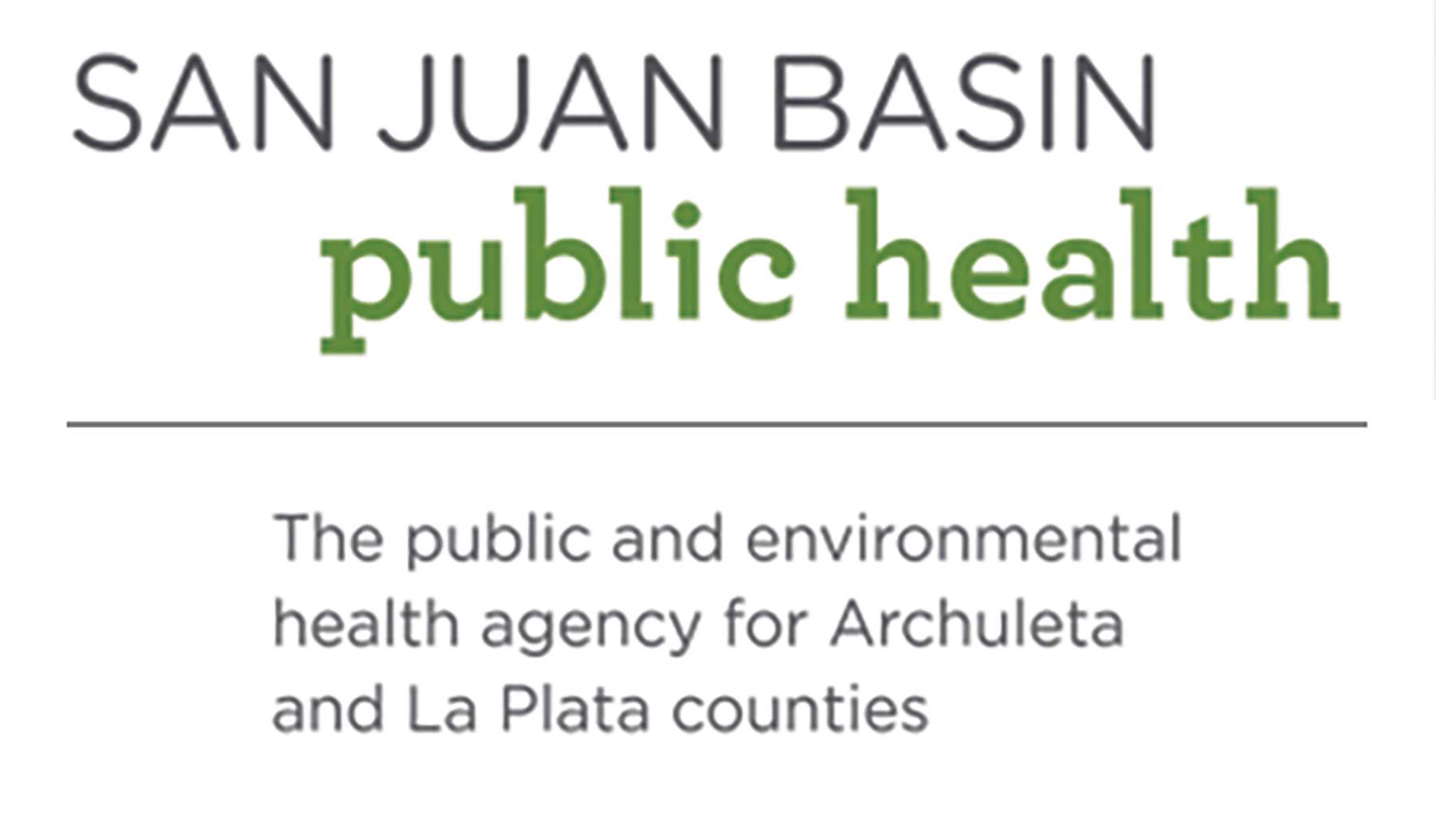As warming weather brings humans and animals in closer contact, San Juan Basin Public Health (SJBPH) reminds residents that there are simple steps that you can take to help prevent rabies, West Nile, Hantavirus, and other animal-borne diseases.
- Control the presence of rodents and mosquitoes around your home.
- Wear insect repellant and appropriate clothing when heading outdoors.
- Keep your pets up to date on vaccinations and protect your pets from fleas and ticks.
- Do not to handle or feed wild animals, especially those that appear sick, and do not pick up dead animals or animal waste. Remember to speak to children about these precautions.
Rabies
Rabies is an infectious viral disease that affects the nervous system of humans and other mammals. People contract rabies from the bite of a rabies-infected (rabid) animal. If you have had a bat in your room while you were sleeping, it is important that the bat is trapped and tested for rabies. Please call SJBPH for further guidance or to report an encounter with a suspect animal. Be sure to have your pets vaccinated even if they are indoor animals (bats can get into homes) to keep them and your family safe.
Plague
Plague is caused by bacteria transmitted to humans by the bites of infected fleas or by direct contact with infected animals. Plague is frequently detected in rock squirrels, prairie dogs, wood rats, and other species of ground squirrels and chipmunks. SJBPH investigates prairie dog population die-offs for the presence of plague. SJBPH asks that community members report if an active colony of prairie dogs suddenly disappears. Be sure to keep pets on preventative flea and tick medicine from a veterinarian.
West Nile Virus
West Nile Virus is carried by mosquitoes and is passed on to humans through mosquito bites. This disease can cause encephalitis (inflammation of the brain) and meningitis (inflammation of the lining of the brain and spinal cord). Remember to use insect repellent when going outdoors. Also, help reduce the number of mosquitos around your home by emptying standing water from flowerpots, gutters, buckets, pet water dishes, discarded tires, and birdbaths on a regular basis.
Hantavirus
Hantavirus Pulmonary Syndrome (HPS) is a severe, sometimes fatal, respiratory disease. Hantavirus, once dubbed Four Corners Disease for its prevalence in this area, is carried by wild rodents, particularly deer mice, and is present in their droppings, urine, and saliva. Dried droppings or urine can be stirred up in dust and humans may contract Hantavirus by breathing in the contaminated air. Before cleaning up droppings, be sure to ventilate the room by opening windows and doors, and spray down all droppings with a bleach solution (1 cup bleach per gallon of water) before vacuuming or sweeping.
Tularemia
Tularemia exists in the rabbit population and is transmitted by insect bites, direct transmission, or inhalation or ingestion of the bacteria. The infective dose is very small and can persist for long periods of time in the environment in water, soil, and carcasses.
When mowing or landscaping:
- Don’t mow over sick or dead animals. When possible, check the area for carcasses prior to mowing.
- Use of masks during mowing and other landscaping activities may reduce your risk of inhaling the bacteria, but this has not been studied.
- If you hunt, trap, or skin animals:
- Use gloves when handling animals, especially rabbits, muskrats, prairie dogs, and other rodents.
- Cook game meat thoroughly before eating.
Tick Borne Diseases
Colorado tick fever is the most common tick-borne disease in Colorado, though most cases go unreported. It’s a viral illness characterized by fever, headache, body aches, nausea, abdominal pain, and lethargy. Complete recovery may take two to three weeks. The disease is not life-threatening and infection results in lifelong immunity. There’s currently no preventative vaccine or effective treatment except to let the disease run its course.
Rocky Mountain spotted fever is a serious disease transmitted by infected Rocky Mountain wood ticks. There may be sudden onset of high fever, headache, chills, and muscle aches. A rash often appears a few days later. Prompt medical attention is extremely important because Rocky Mountain spotted fever can be fatal if treatment is delayed. The illness can be cured with antibiotics.
To learn more about the symptoms, treatments, and other information for these diseases, visit sjbpublichealth.org/communicabledisease/ or, to report an encounter with a suspect animal, call 970-335-2020. Information is also available from the Colorado Department of Public Health and Environment at www.colorado.gov/cdphe or Centers for Disease Control and Prevention at www.cdc.gov.
San Juan Basin Public Health is a local public health agency, governed by a seven-member local Board of Health, serving all residents of Archuleta and La Plata counties. For over 70 years, San Juan Basin Public Health has improved the health and environment of Southwest Colorado.

